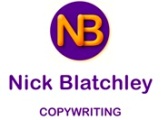From time to time over the past year, people who know I’m a copywriter have asked for help copyrighting something they’re thinking of publishing. I’m happy to give whatever advice I can, of course, but I have to explain that, if they want expert advice, it’s really a solicitor they need.
It’s far more obvious when you see them written that copywrite and copyright are homophones – pairs of unrelated words that are spelt differently but sound the same. There are plenty of these – for instance, bear/bare, sun/son, where/wear.
It can get even more complicated, since sometimes unrelated words are spelt the same as well as pronounced the same. Bear can mean to carry (literally or metaphorically carrying a burden) or it can mean a large mammal.
Or what about bird, meaning a girl? Most people assume this is modern slang suggesting cuteness, but it actually goes back centuries and has no connection with winged and feathered creatures. The word for those comes from the Old English word brid, meaning much the same as now, whereas the other comes from bryd, meaning an unmarried girl – the same source as bride. In archaic texts, it’s sometimes spelt burd, and explained as “maiden”.*
But back to copywriting and copyrighting. The former means writing copy, in the sense of putting pen to paper (or pixels on the screen), whereas the latter indicates the legal rights over who can and can’t copy a work. They can exist side by side – what a copywriter writes is subject to copyright – but they’re in no way the same thing, either in meaning or in source. One derives from the Old English writan, the other from riht.
I have no doubt I’ll be asked again (and again) whether I can sort out someone’s copyright, and of course I’ll do my best to give whatever advice I can. I hope, though, a few people will remember there’s as much difference between a copywriter and a copyrighter as between… say, a bird and a bird.
* The accidental link between girls and birds goes further – chick in the same sense comes from chica, the Spanish for girl.
